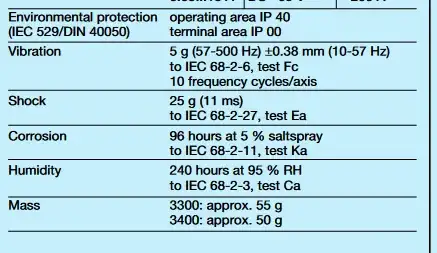While there are exceptions the majority of cars use fuses instead of circuit breakers to protect electronics and I'm wondering why circuit breakers are not more widely used. Is it practicality, cost, regulations or a combination of those factors?
6 Answers
(1) Fuses are cheap. Really cheap. You can get a variety pack of 100 for $8 or so. Circuit breakers for 12V systems are available, but are not cheap (more like $10 each). My car has 40 or 50 circuits, so that is a large chunk of change.
(2) Fuses are small and can be put into tight spaces, much smaller than you can get your fingers into. Look at your main fuse box and consider just how large it would get with breakers, even the push-button ones.
(3) Breakers are great for circuits you want to turn off, or quickly turn back on. But neither of those really comes into play on a car - 12V won't kill you, unlike your house wiring.
(4) Mostly your car just runs. In 45 years of driving I've never replaced a fuse.
(5) Circuit breakers have mechanical parts that need to move when needed, and not move when not needed. Cars experience shock and vibration through their lifetime, making the simple fuse a more reliable way to protect a circuit.
(6) from @Criggie, particularly in the engine bay there is oil, dust, water, etc. Fuses don't notice, many breakers will not like that. You can get marine grade breakers that are sealed, but that adds cost.
- 575
- 4
- 11
I don't have a definitive answer, but believe it is a combination of factors and boils down to the following:
- Cost: While both do the job of protecting circuits, a fuse runs you cents per unit, while breakers can cost you dollars per unit. When you consider in a modern vehicle, there are probably 30 to 50 circuits which need protection, that creates a large cost overall to try and run breakers.
- Practicality: Size is a large consideration here. Fuses have a very small footprint when you compare them to breakers. Engineers trying to create fuse panels in vehicles have very limited space in which to put a fuse panel. If you were to create a breaker panel, you'd have to allocate a lot more space to this endeavor.
Another factor (not sure how or if it fits in with the above) to consider is, as long as the owner of a vehicle doesn't start putzing around and changing things in the vehicle, the circuit stays in tact and the fuse is never truly needed. Engineers design enough overhead into a circuit the systems of the vehicle will most likely never overload one, and therefore the fuse will never need to be replaced. The fuse is there on the off chance something happens which was not accounted for and can stop a chain reaction of events which might otherwise have serious consequences for the vehicle and all aboard. The fuse can do this at a much lower cost than the breaker, so this fits into both a cost and practicality reasoning.
- 165,084
- 32
- 259
- 508
In addition to the other good answers:
You'll see self-resetting circuit breakers in heavy-truck applications, which is a far more abusive environment, and prone to intermittent faults (esp. in trailer circuits).
From my personal experience, most blown fuses are from trailer wiring problems, and the rest are from people plugging things into the "power ports" ("cigarette lighters" for us geezers). Very rare to see other fuses blow besides a short circuit from a collision.
So as the others have answered, in a car the cost/size/complexity outweigh any advantages.
With one notable exception, automotive fuses almost never blow in the absence of a catastrophic failure such as a crash which causes wiring to be severed. One of the primary purposes of the fuses is to prevent the wiring from overheating and starting a fire if that happens. In such a case, having to replace fuses would be the least of one's worries.
The notable exception is with the "cigarette lighter" socket, whose current delivery capacity varies between vehicles. If one plugs in a 120V inverter which is designed to be able to convert more current than a car's socket is designed for, and plugs a high-draw AC device into it, that will blow the fuse, but there's no nice way for a user to know in advance how much of a load could be placed on the inverter without blowing the fuse. A circuit breaker there would IMHO be an improvement over the fuse.
Additionally, many cars have (or at least used to have) a self-resetting breaker driving the windshield wiper motor. This was intended not only to protect the wiring, but also to protect the motor in case the wipers are jammed up (e.g. with ice). When the motor is stalled, it will draw much more current, and generate much more heat, than when it is running; the breaker would be chosen so that it would pass the motor's stall current for a short period of time, but eventually trip if the wipers are left on while stalled.
- 291
- 2
- 4
I'll add one factor which the other already good answers didn't mention in detail: weight.
Modern cars have several dozens of fuses, each one weighing a couple of grams. Imagine replacing them with even the smallest automatic breaker you find, for example this:
and look at the specs:
It weighs ten times more! Not mentioning it's much bigger and the endurance against the environmental conditions is nowhere suitable for a car. And improving its tolerance against an adverse environment will probably add still more weight.
Bottom line: you'll end up adding kilograms of weight for no more than a very small convenience (resetting a breaker instead to change a blown fuse, event which in normal car operation is quite rare). In exchange you will have a heavier and more expensive car.
Fuses and circuit breakers are two kinds of overcurrent protection; both protect from two kinds of events:
- Short circuit, in which a positive conductor touches the common/ground. This causes instant, nearly infinite current.
- Overload, in which too many devices each operate normally but simultaneously. This causes current that is too high for safety, though much less than a short circuit.
Short circuits happen only if something breaks, which is rare. Replacing a fuse is a small fraction of the cost of diagnosis and repair of an electrical problem. The small convenience of breakers can’t justify their extra cost.
Overload protection generally isn’t a concern in vehicles, because you rarely connect new electrical devices, especially the high-current devices like the starter and resistance heaters. Again, fuses are cheap and replacement is rare. Overload is more of a concern in buildings: nothing stops you from plugging in a hair dryer, toaster oven, and coffee maker into the same circuit, and this happens frequently enough for the convenience of breakers to justify the cost.
- 151
- 1

